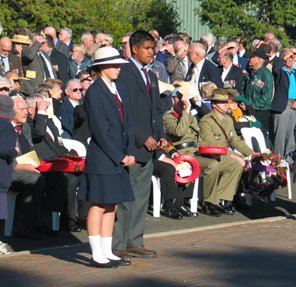1 November: Boreham on Remembrance
 Festival of Memory
Festival of MemoryThat nation has the best memory which remembers the best things. We do well, therefore, to set aside one day in the year to reflect on the ideals for which, in the course of two titanic conflicts, such superb sacrifices were made. As we approach Remembrance Day, our powers of recollection and reminiscence are at their golden best. To keep the hallowed feast, Memory attires herself in her most beautiful garments, and, even though there be a suspicion of moisture in her eyes, her face glows with a deathless pride.
At ordinary times the human memory is fickle, inconstant, even treacherous. Augustine Birrell, when he left the British Cabinet, was urged to write his autobiography. Although he had touched life at so many points, and had a really great story to tell, he firmly declined. He had, he explained, once stated publicly that, at a dinner at Liverpool, he had seen Charles Dickens introduced to a Miss Weller, and had been amused by the odd conjunction of names. It was afterwards pointed out to him that the incident took place seven years before he himself was born. He had heard the story told so graphically, and had pondered it so frequently, that he had come to believe that he had actually witnessed the episode. And the knowledge that his memory had played so embarrassing a prank upon him rendered him unduly apprehensive of committing to paper the things that, in all good faith, he seemed to recall.
The Dangers Of Forgetful Green
People who are troubled by the facility with which they forget things, often declare with vexation, that they have a memory like a sieve. They have failed to observe that, whilst a sieve allows the fine sand to escape, it retains the larger nuggets. The memory often works on a diametrically opposite principle. A man remembers the first fish that he ever caught long after many of the more momentous events of his career have faded from his mind. The winning hit that he once made for the school eleven lingers pleasantly in his thought when the twists and turns of his later history have passed into the oblivion of forgetfulness.
Greatheart, Bunyan's redoubtable guide, pointed out to the boys that their father's famous tussle with Apollyon took place on the fringe of Forgetful Green; and Forgetful Green, he added meaningfully, is the most dangerous place in all those parts. Everyone knows what Bunyan meant. Moses wrote a whole book on the subject. It is popularly known as the Book of Deuteronomy; but a modern author would have called it The Dangers of Forgetful Green. It is a treatise on the peril of forgetting the very things that we are in duty bound to remember. The Israelites had passed through experiences so dramatic, so miraculous, and so poignant, that the very memory of them would, if cherished, prove a compelling inspiration to them amidst the tests and trials that still awaited them. To forget such a Past would be to imperil all the Future.
To Forget Is To Be Forgotten
In a memorable passage Macaulay argues that the nation that fails to treasure the memory of all that is heroic in its stately Past will achieve nothing worthy of being remembered by its remote descendants. There is a high artistry in training the memory. It must not be left to chance. Mr. Gladstone possessed a phenomenal memory. Asked as to his secret, he replied that, as a basis, a man must form a clear perception as to the things best worth remembering. Properly understood, all our most impressive religious observances are cunningly devised contrivances to save us from jettisoning our most valuable recollections. We close our shops on one day of the week in order that we may remind ourselves, and one another, of the things that we cannot afford to let slip. In all the churches, the Communion service is a sacrament of memory. "This do in remembrance of Me." It is all 'lest we forget.' The solemnities of Remembrance Day fit perfectly into this pattern. Our chastened minds hark back to the tender grace of a day that is dead. We recall old faces and old experiences. We do honour to those whom we have loved long since, and lost awhile. And, in the process, a new grace steals into our own hearts and we find ourselves braced to loftier endeavour by our retrospective excursion into other years.
F W Boreham
Image: Remembrance Day gathering


<< Home